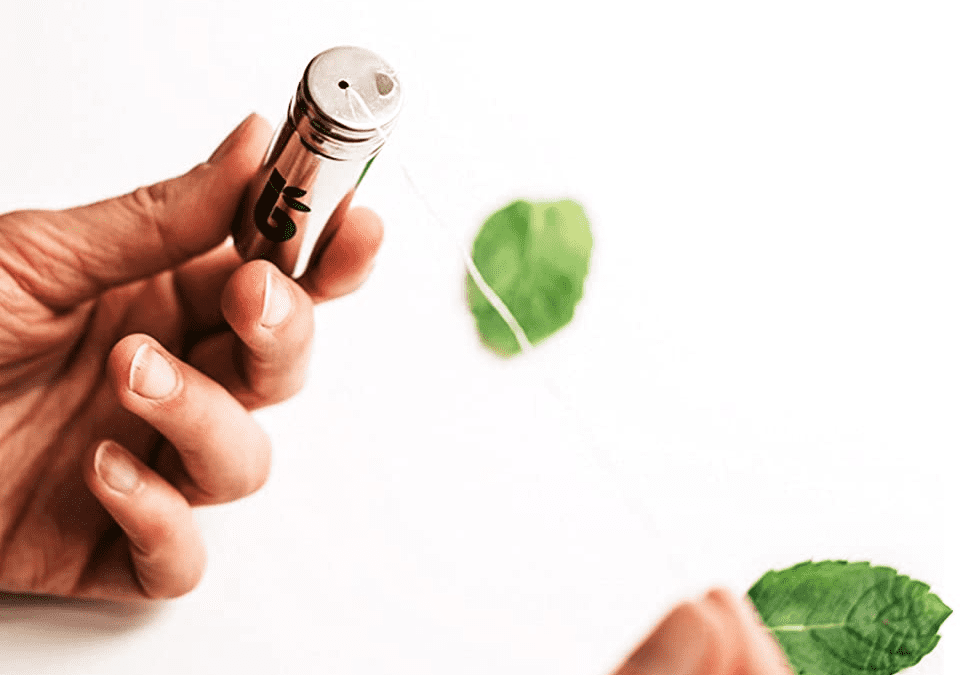Due to its non-biodegradable, petroleum-based plastic and non-recyclable packaging, dental floss contributes significantly to global waste.
Here’s what you need to know to create an eco-friendly dental hygiene routine that keeps your teeth and gums healthy while living a more sustainable lifestyle.
What is the environmental impact of dental floss?
Most traditional dental floss is made out of nylon, a non-biodegradable material, which takes longer to decompose in landfills.
Dental floss and other small plastics are often caught up during the disposal process and end up in the ocean. Because floss is designed to not tear, it causes significant problems for marine life. Dental floss, like other plastics, can suffocate marine animals or cause serious health problems, such as digestive issues.
Many manufacturers produce waxed floss, which is stick- and stain-resistant, so it moves between the teeth easily. Sadly, wax floss is manufactured using perfluorinated chemicals, which are commonly found in kitchenware and furniture. Although the impacts of PFCs aren’t definitive yet, research suggests that they may have detrimental effects on health.
Furthermore, most dental floss comes in a plastic container, which will end up in a landfill for hundreds of years if it isn’t recycled.
Every year, if everyone in the United States flossed their teeth as recommended, the plastic containers could fill a football field six stories high.
Is it Time to Stop Flossing?
Although dental floss harms the environment, you should keep flossing for a greener routine. There are countless studies that show that flossing has health benefits, and it’s still necessary to maintain healthy teeth. Our toothbrushes cannot reach all of the food particles that get stuck between our teeth. Over time, food produces harmful bacteria and plaque, which can lead to cavities, gum disease, and tooth decay.
Consequently, skipping this step isn’t the best option, even if you are trying to go zero-waste-and reusing floss isn’t healthy. Furthermore, reusing floss can transfer bacteria around your mouth, according to the American Dental Association, which can shred the material, leaving it ineffective.
Alternatives to traditional floss that are eco-friendly
A sustainable alternative to traditional floss is available. One popular alternative is recyclable dental floss, which allows you to create an eco-friendly routine. Bamboo fiber is used to manufacture recyclable dental floss, along with plant-derived ingredients that remove buildup where your toothbrush cannot.
Using recyclable floss comes in a recyclable floss box. Recycled FSC certified paper dental floss boxes are 100% recyclable, so all you need to do is remove the floss cutter and recycle the box.
Oral care products that are sustainable and non-toxic
The answer to zero-waste floss or reducing your carbon footprint is recyclable dental floss.
Recyclable dental floss refers to dental floss that can be recycled or disposed of in an environmentally friendly manner. Traditional dental floss is typically made from nylon or other synthetic materials that are not biodegradable and can take hundreds of years to decompose.
There are now several brands of dental floss on the market that are made from materials that are biodegradable or compostable, such as bamboo or silk. These types of floss can be disposed of in the compost or recycling bin, depending on the specific material.
It’s important to note that while recyclable dental floss is a step in the right direction towards reducing plastic waste, it’s also important to practice proper dental hygiene to prevent the need for excessive flossing. Additionally, reducing overall plastic consumption by choosing reusable products and avoiding single-use plastics is another important way to reduce environmental impact.

